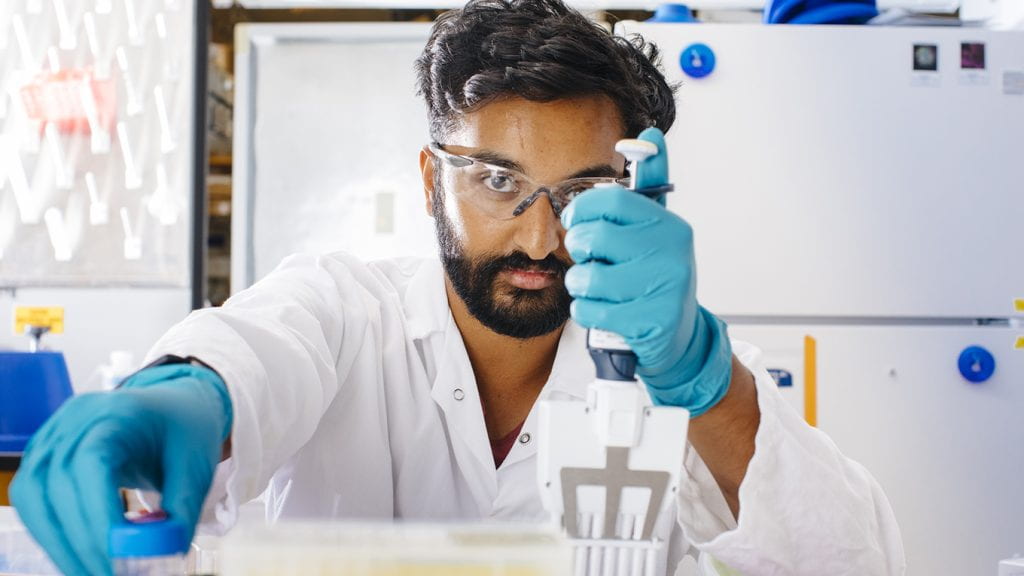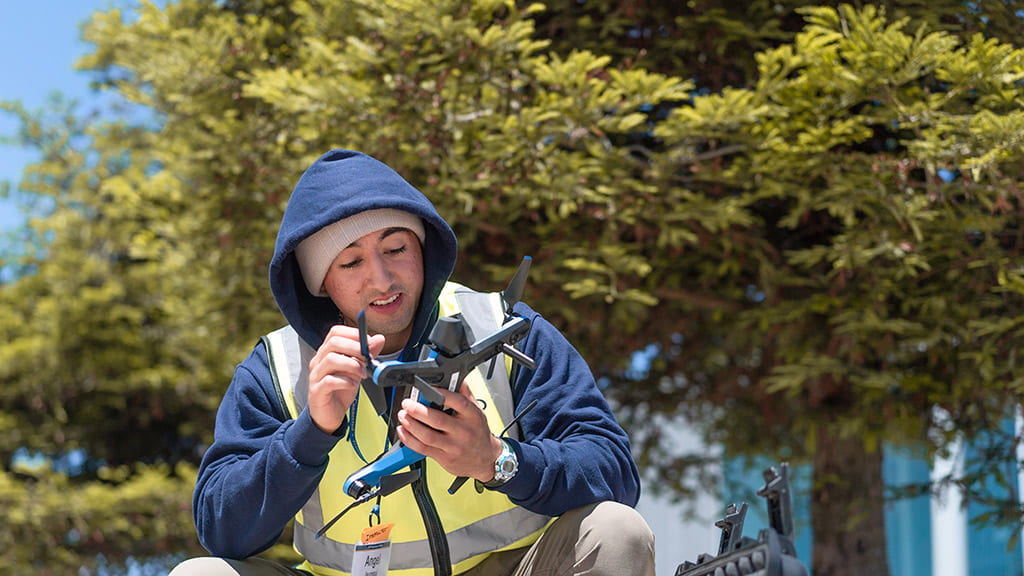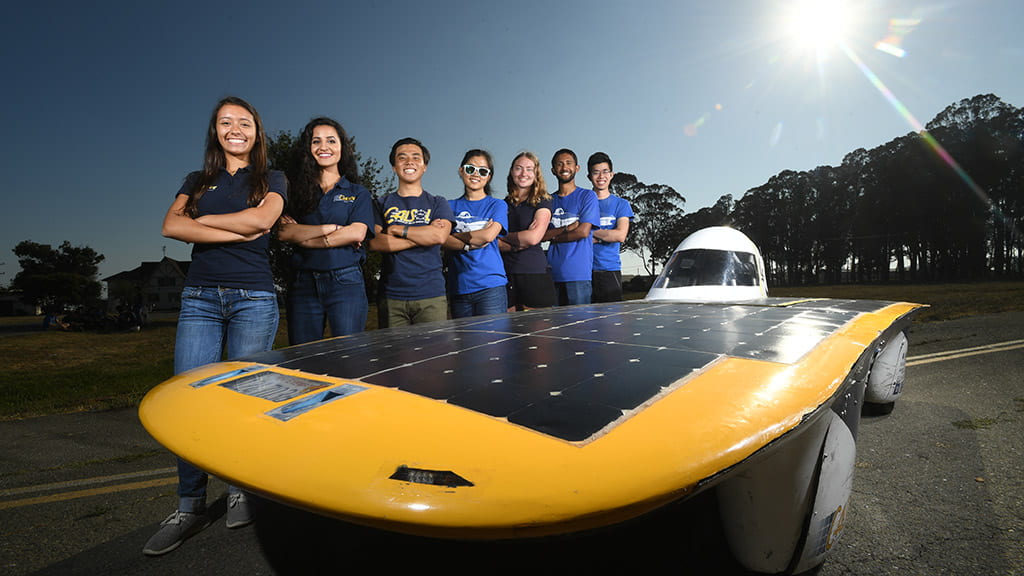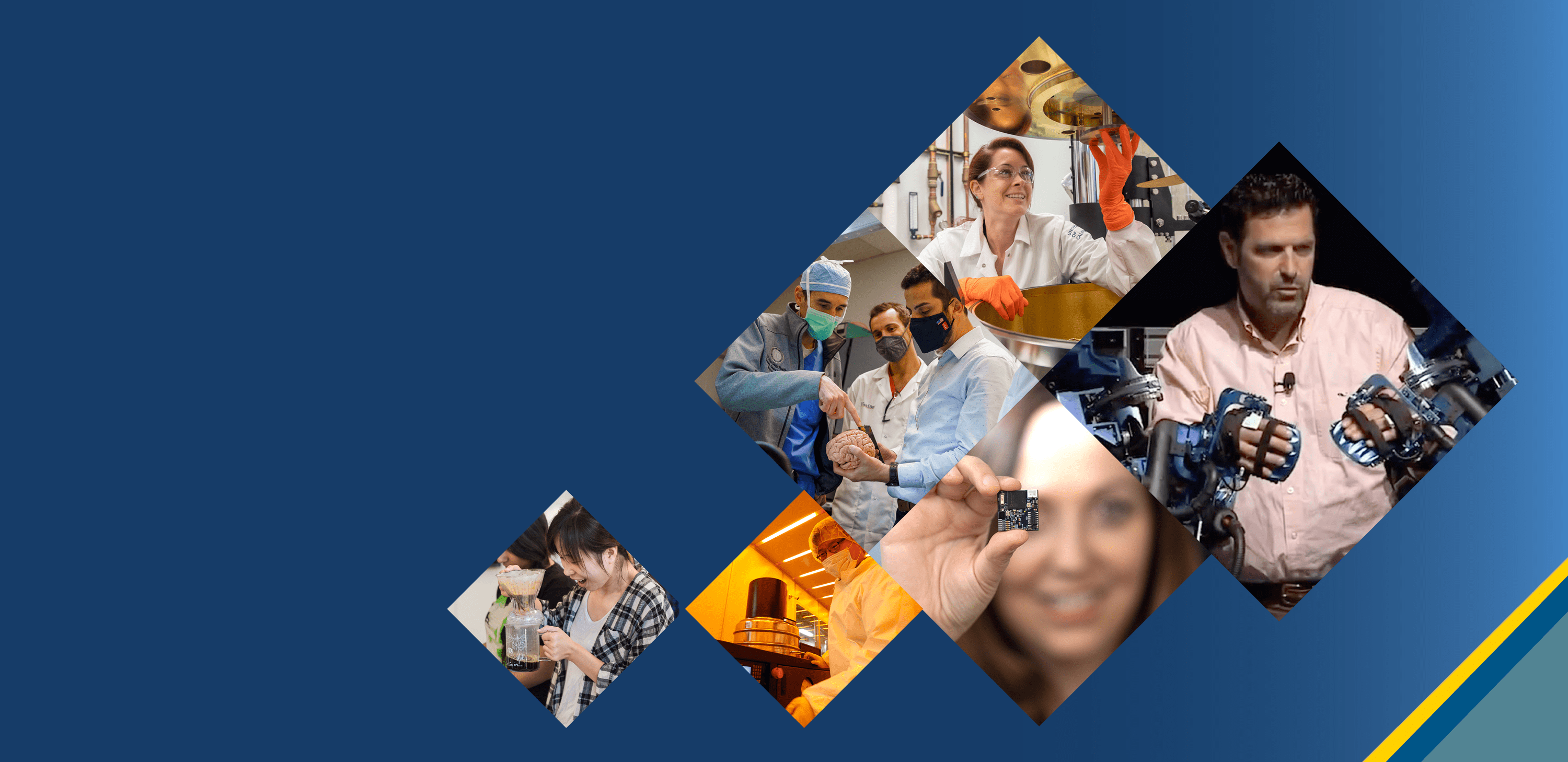
ENGINEERS WEEK
Sustainability

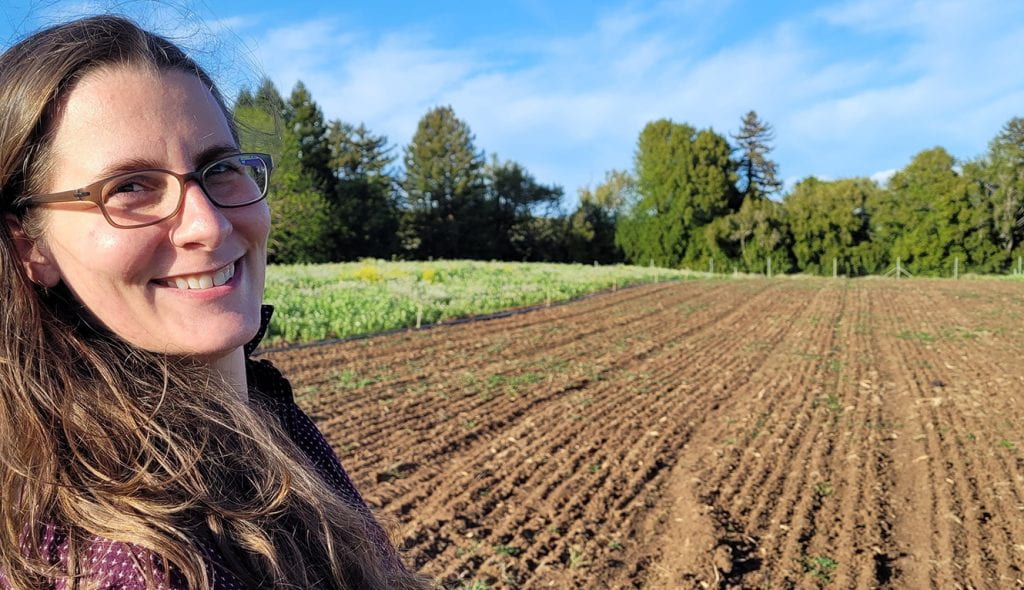
Engineer deploys research on ‘mud batteries’ for powering sustainable agriculture
UC Santa Cruz
The UCSC farm hosts one of the first field research sites for studying the potential of microbial fuel cells.

Interdisciplinary team wins Small Farm prize in first-ever Farm Robotics Challenge
UCSC
The Electrified Slug’s project focused on the development of the autonomous navigation software to allow the electric tractor to safely and efficiently weed plant lines on small, diversified organic farms, using the UCSC farm as a model for this problem.

Farms to fungi to food: Growing the next generation of alternative protein
UC Davis
Using an innovative process, engineers at UC Davis are growing “myco-foods”—small balls of edible fungi that can be processed into products like boba and lab-grown caviar with a wide range of textures, colors and flavors, providing an important new source of protein to feed the world.
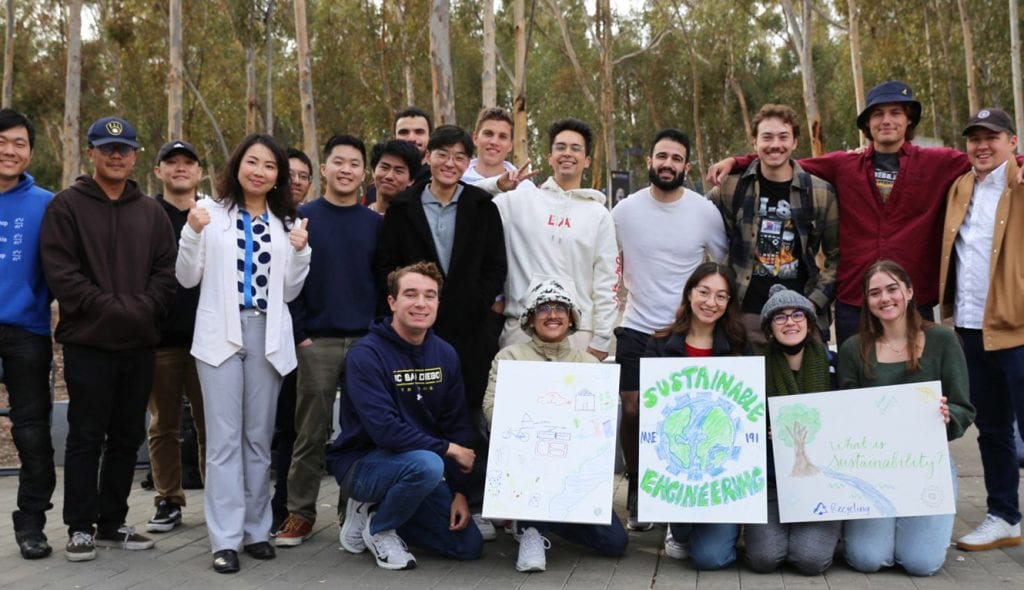
New course expands sustainable practices to all engineering disciplines
UC San Diego
The goal of the course is to encourage future engineers to apply sustainable practices to any and all fields of work.

Turning plastic waste into a valuable soil additive
UC Riverside
UCR Assistant Professor of Chemical and Environmental Engineering Kandis Leslie Abdul-Aziz and colleagues detailed a method to convert plastic waste into a highly porous form of charcoal, which could potentially be added to soil to improve soil water retention and aeration of farmlands.
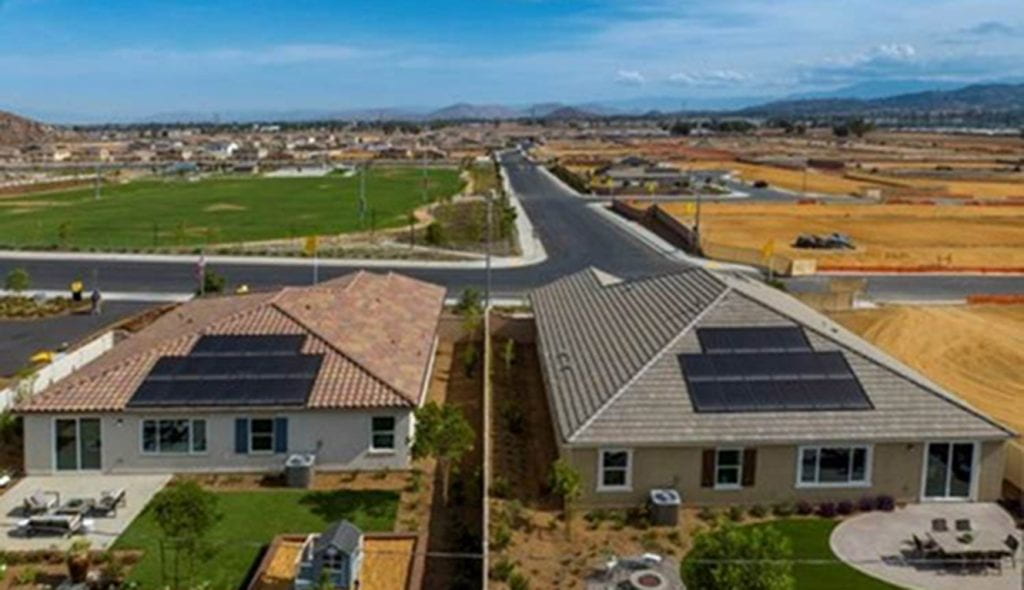
UCI launches first all-electric California microgrid project to test smart and resilient homes for the future
UC Irvine
An industry-academia collaborative project aims to develop, deploy, and test two microgrid communities located in the Shadow Mountain master plan in Menifee, California.

Solar projects yielding exciting potential for dairies, other industries
UC Merced
A company started by UC Merced founding faculty member Roland Winston and staffed by alumni is looking for partners for exciting solar projects—and the government could cover the costs.

First commercially scalable integrated laser and microcomb on a single chip
UC Santa Barbara
Professor John Bowers’s lab is working on a collaborative project to develop an integrated on-chip semiconductor laser and resonator capable of producing a laser microcomb. (PDF)

UCLA research project proposes removal of carbon dioxide from the ocean to help fight climate change
UCLA
A team of researchers at the UCLA Samueli School of Engineering has developed something called single-step carbon sequestration and storage, or sCS2, that focuses on removing carbon from the ocean instead of the air.
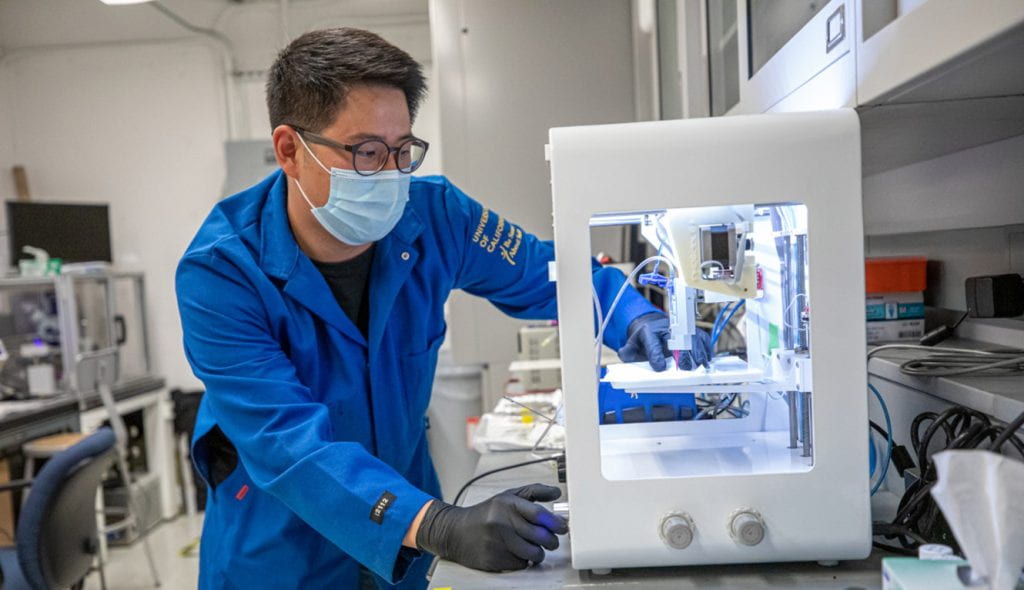
Print, recycle, repeat: Scientists demonstrate a biodegradable printed circuit
UC Berkeley
A UC Berkeley research team has developed a fully recyclable and biodegradable printed circuit, which could divert wearable devices and other flexible electronics from landfills and mitigate the health and environmental hazards posed by heavy metal waste.

Research reveals an easy way dairy farmers can dramatically reduce their climate impact
UC Merced
A recent study by UC Merced researchers shows that adding even a small amount of biochar—a charcoal-like material produced by burning organic matter—to a dairy’s manure-composting process reduces methane emissions by 84%.
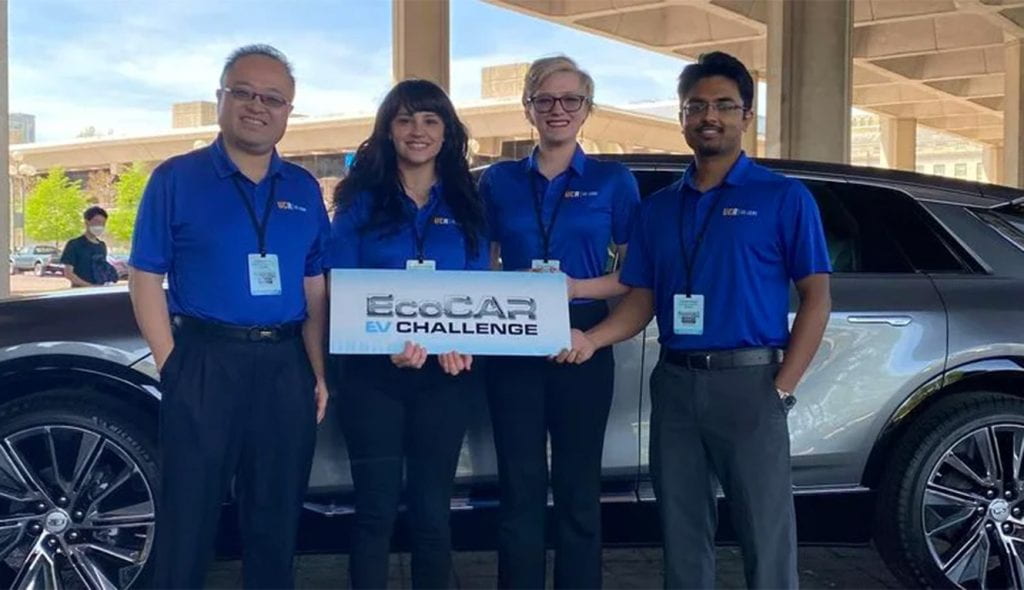
UC Riverside selected to participate in the EcoCAR EV Challenge
UC Riverside
UC Riverside has earned a spot as one of the 15 universities to participate in this prestigious competition.

STEAM: Meet Dr. Rajit Gadh, a green energy futurist
UCLA
Rajit Gadh, a professor of mechanical and aerospace engineering at UCLA’s Samueli School of Engineering, is engineering power solutions by focusing on maximizing renewable energy storage and reducing our reliance on gas and oil.
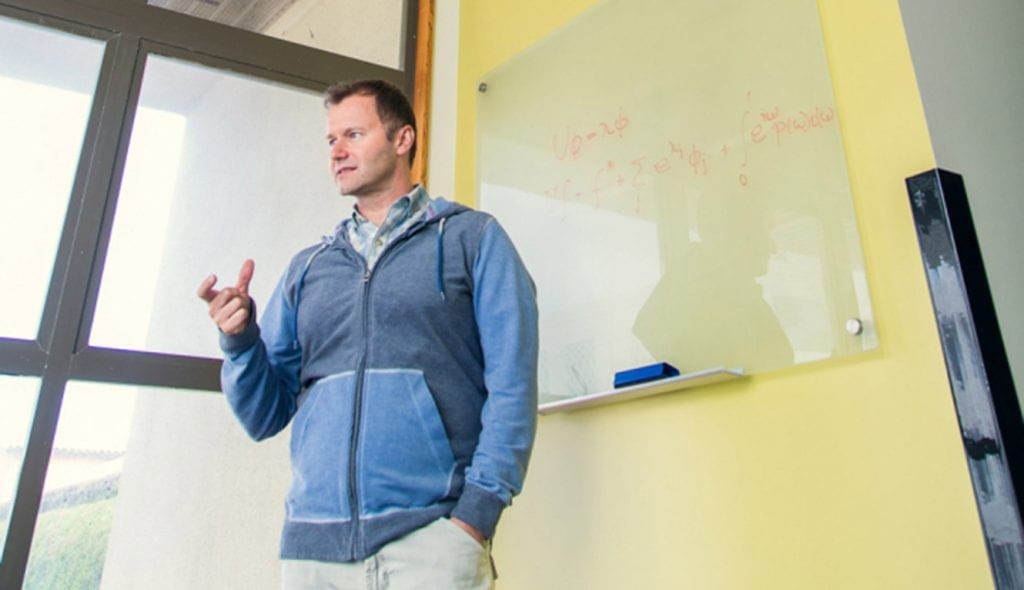
Algorithms for sustainability
UC Santa Barbara
Mechanical Engineering Professor Igor Mezić develops algorithms that are embedded in software that drives a building’s capacity to be smart and informs human managers what is needed for it to run at optimal efficiency.

‘This project is mushrooming‘
UC Davis
UC Davis Professor Valeria La Saponara is developing compostable, ecologically sound wind turbine blades from bamboo and mycelium, the fungal root-like system that bears mushrooms.

UCI, national laboratory scientists probe carbon sequestration at the molecular level
UC Irvine
Researchers at UCI and Pacific Northwest National Laboratory have conducted a detailed examination of the chemical processes involved in converting CO2 gas into a solid that could be buried beneath Earth’s surface, where it would remain indefinitely instead of leaking back out into the atmosphere.

Innovative climate resilience projects supported by 2022 CITRIS Campus Seed Funding awards
UC Santa Cruz
One of the projects, led by Nobuhiko Kobayashi, professor of electrical and computer engineering, is using an innovative electrolysis technique to generate green hydrogen—a form of renewable energy—from seawater, without generating byproducts that damage coastal environments and marine ecosystems.


